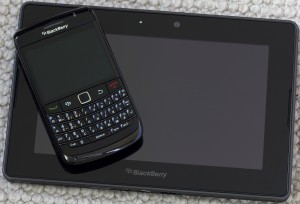The lesson from BlackBerry
BlackBerry’s demise teaches us how important it is to keep ahead of the technological trend
This week, after 14 years, BlackBerry announced they would no longer be designing new phones. Sure, that doesn’t mean they won’t be releasing new phones in the future, but it does mean that BlackBerry won’t be designing them in-house.
This announcement is unlikely to radically affect too many people. After all, it’s not often you see someone tapping away on their BlackBerry these days. However, that does not mean the announcement is irrelevant. Between 2008 and 2010, BlackBerry held a 20% share in the smartphone market. In Q4 2010, 14.6 million BlackBerry smartphones were shipped worldwide. Fast forward to Q2 2016, and BlackBerry’s market share is just 0.1%.
It seems like a long time ago now, but BlackBerry was once the smartphone of choice for businessmen, heads of state and celebrities.
What went wrong?
In 2007, Apple released the first iPhone and in 2008 the HTC Dream became the first smartphone running Google’s new Android OS. Android and iOS would go on to become the dominant forces in the smartphone world. With its new innovative multi-touch screen and clever features, the iPhone changed the way people viewed smartphones. The smartphone was no longer reserved for the busy corporate individual, now the average consumer could get in on the action.
In the years that followed, iPhone and Android battled against each other to provide customers with new, killer features. The hardware and software evolved together with impressive results.
BlackBerry, on the other hand, was stubborn. The company that built its brand as a tool for enterprise users continued to make phones that favoured function over form. As iPhone and Android devices were created with beautiful design, BlackBerry devices by contrast looked stale and boring. The OS that powered them wasn’t much different either. As someone who owned a BlackBerry briefly a few years ago, I can say with certainty that it had the most bug-ridden operating system I have ever used on a phone. BlackBerry executives didn’t view their new opponents as a threat until it was too late. They felt that iPhones and Android phones simply would not gain traction as, without a physical keyboard, there was no way they would appeal to business users.
Looking back, it appears they were wrong.
The success they enjoyed in the late 2000s was due to having some innovative features, such as email on the go, good security and BBM – which as a mobile instant messaging service was way ahead of its time. But after 2010, they failed to make any serious innovations and the tide of progress caught up.
What is the lesson for businesses today?
BlackBerry is a shining example of how failing to keep ahead of the competition and resting on your laurels can, and often will, be catastrophic. Granted, BlackBerry is a technology company and therefore driving technological advancement should be their priority, but their example should show all companies that those who keep at the forefront of technology and are quick to embrace change will prosper and those who don’t will suffer.
I’m not a BlackBerry user, but I still feel an element of sadness to see their demise, as though it is the end of an era. Trends come and go, and the business world can often be brutal and unforgiving. So much so that even what was once a technological behemoth can be reduced to rubble in a relatively short period of time.
It is a reminder that to survive, we must always be at the front of technological progress.
